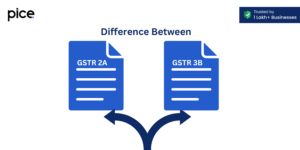Claim Input Tax Credit on Food and Beverages under GST
- 24 Jul 25
- 9 mins
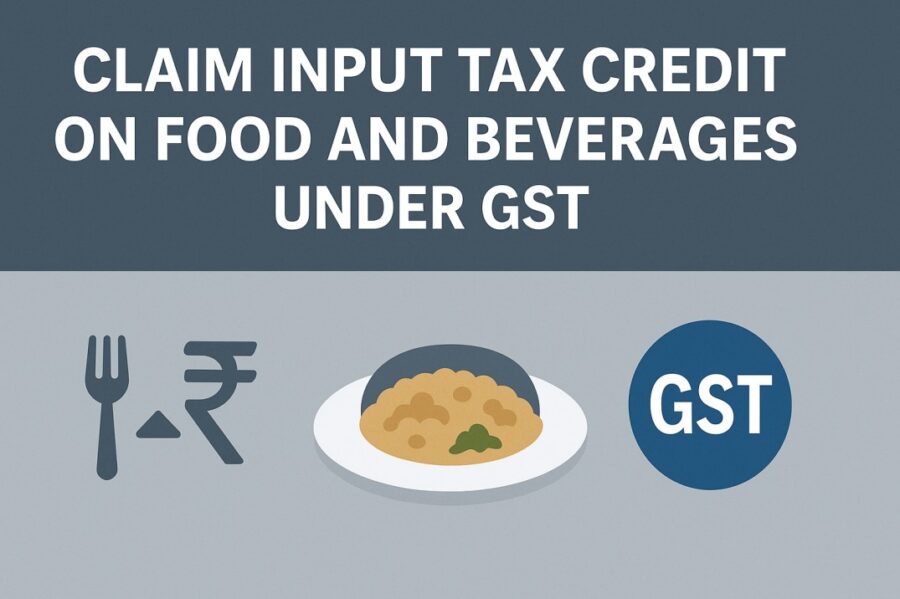
Claim Input Tax Credit on Food and Beverages under GST
Key Takeaways
- ITC on food and beverages is largely blocked under Section 17(5) of the CGST Act unless used for making taxable outward supplies.
- Businesses in the hospitality sector can claim ITC on capital goods, maintenance, advertising, and other business-related expenses to reduce operational costs.
- Corporate entities cannot claim ITC on staff welfare, pantry expenses, or canteen services provided for personal consumption.
- Claiming ITC requires proper documentation, GST-compliant vendor selection, and invoices billed in the company’s name.
- Timely return filing, location-wise registration, and periodic audits are critical for maximising ITC benefits in F&B services.
The Goods and Services Tax was introduced in India in 2017. The primary aim of GST was to eliminate the cascading effect of all indirect taxes and replace them with a single tax. Input Tax Credit, one of the crucial elements of the GST regime, helps businesses to reduce their tax liabilities.
Followingly, this detailed overview shares some key insights on claiming Input Tax Credit on food and beverages under GST. Ensure to read the following overview thoroughly to stay legally compliant and make an informed decision for your business’s F&B services.
The Concept of Input Tax Credit
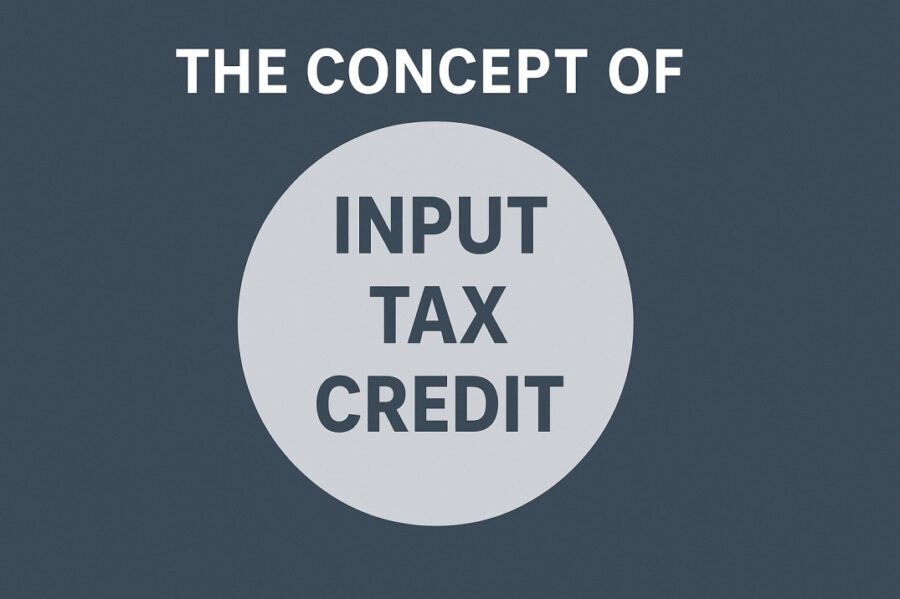
Input Tax Credit is a highly beneficial mechanism in tax treatment. It allows businesses to save on the tax that they pay on input from the tax that they pay on output. ITC saves a registered person by preventing the ‘Tax on Tax’ effect. It facilitates credit on input taxes.
Let’s understand the mechanism better with an example. If a hotel purchases food items from a GST-registered vendor and pays GST on them, the hotel authority will be eligible to claim credit against the paid GST.
However, it is important to note that as per Section 17(5) of the CGST Act, businesses are unable to claim ITC on foods and beverages. The purchases should meet certain parameters to be eligible for claiming credits on the taxes paid.
Types of Taxes Covered for ITC
It is important to know that not all taxes related to the supply of food and beverages are subject to ITC. Only the taxes paid on input services offer the benefit of claiming credit. Here are some Goods and Services Taxes that allow credit claiming:
- Central Goods and Services Tax (CGST)
- State Goods and Services Tax (SGST)
- Integrated Goods and Services Tax (IGST)
- Union Territory Goods and Services Tax (UTGST)
The GST authority has also extended its law on certain aspects where the credit is blocked or off-limits. Under Section 17(5) of the CGST Act, certain expenses related to food and beverages, like outdoor catering services, club membership, etc., are not eligible for ITC unless these expenses were used to make outward taxable supplies or a part of a composite supply.
For example, a restaurant purchasing food items to serve its customers can claim ITC on those purchases. However, an IT company ordering lunch for employees is unable to claim ITC on the paid GST.
Business & Industry-Specific
In the following, let us discuss how the Input Tax Credit influences the food and beverage industry. In this particular industry, ITC works magically. While enjoying a cup of coffee, you can avail a discount on the GST you have paid for its ingredients. Interesting, isn’t it? Then, let us decode it further:
Exploring the Significance of ITC in Reducing Operational Costs in Hospitality
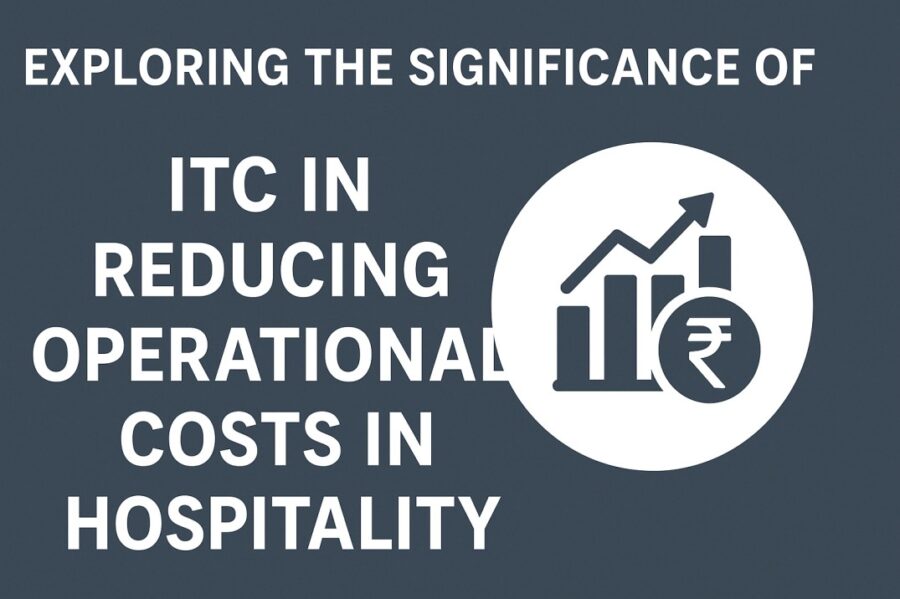
Input Tax Credit can significantly reduce operational costs in the hospitality sector. Taxpayers can claim ITC on the taxes paid. Here is a tabulated illustration to help you understand better:
| Category of Expenses | Applicable GST | ITC Eligibility | Cost Impact |
| Raw materials of food and beverages | 5% - 18% | No, in case of exempt supplies | Since ITC is ineligible, it elevates the total costs used for raw materials, unless it is a taxable sale. |
| Capital goods | 18% - 28% | Yes | The credit claim brings down the initial expense. |
| Housekeeping and maintenance | 12% - 18% | Yes | It lowers the overall maintenance cost. |
| Commercial property renting | 18% | Yes | The claimed ITC significantly saves cost on leased properties. |
| Advertising and marketing | 18% | Yes | Due to the low net cost, taxpayers can engage in more promotional activities. |
| Canteen and transport for employees | 5% - 18% | No | This elevates the operational cost. |
| Catering and banquet services | 5% - 18% | No for personal consumption, only for business purposes | Since we are unable to claim ITC, the overall expenses add up. |
| Laundry and guest amenities | 5% - 18% | Yes | This helps to reduce the total expenses on guest services. |
| Professional and consulting services | 18% | Yes | The ITC claim aids in effective cost management. |
Analysing the Role of ITC in Managing Corporate Food and Beverage Expenditures
ITC helps to reduce food and beverage costs in corporate firms. However, not all expenses are ITC claimable. Followingly, we have categorised some of the sale of food and beverage expenses along with their GST applicability and ITC eligibility:
| Expense Type | Applicable GST Rates | Eligibility of ITC | Key Consideration |
| Canteen services | 5% - 18% | No | As per Section 17(5), CGST Act, no ITC will be applicable in this expense. |
| Pantry expenses | 5% - 18% | No | Since these expenses are subject to personal consumption, no ITC will be applicable here. This leads to additional business costs. |
| Hotel stays including breakfast | 12% - 18% | Yes | ITC will apply for business-related accommodations. |
| Catering Services for Business Functions | 5%-18% | Yes | ITC is available in case of taxable business events. |
| Staff Welfare Expenses (Refreshments, Team Lunches) | 5%-18% | No | ITC is blocked for personal employee benefits. |
Best Practices for Leveraging ITC Benefits in Corporate Food Services
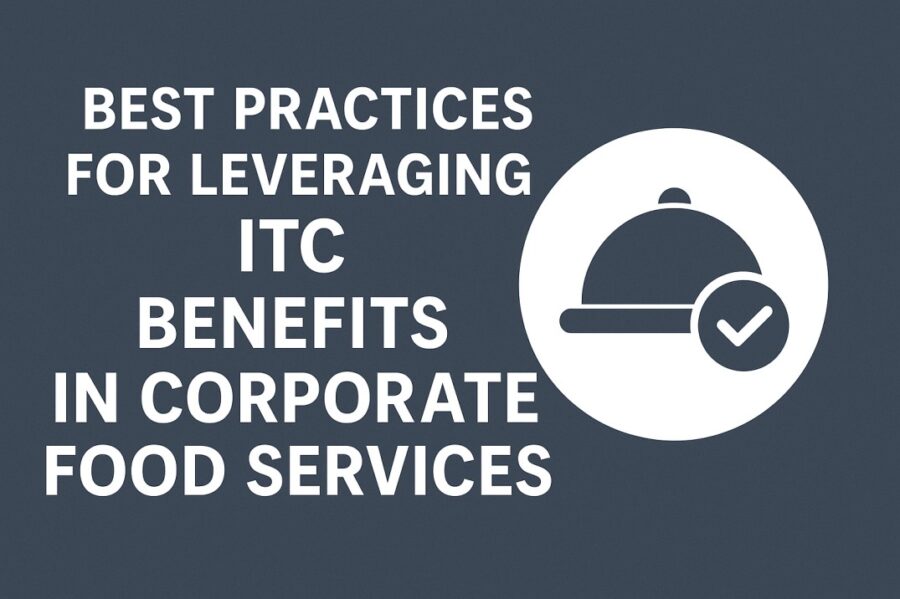
Here are some best practices that corporate organisations can incorporate to leverage ITC advantages in food and beverage services:
- Vendor Compliance: Consider availing food services from GST-registered suppliers for end-to-end compliance. This makes you eligible to claim ITC on purchases. Also, verify that your vendors file their GST returns on time to avoid ITC mismatches.
- Proper Documentation: Keep proper records, such as invoices and digital receipts, for all food services. Not only does it help in audits, but it also allows authorities to claim ITC seamlessly.
- Exclude Personal Consumables: Staff meals and costs for entertainment are considered personal expenses. ITC is not eligible for such expenditure. Keeping the data of all ITC-eligible expenses with those that are not eligible might raise confusion, leading to incorrect ITC claims.
- Optimise Initial Capital Expenditure: Claim ITC on capital goods such as furniture, kitchen equipment and software to reduce upfront investment costs. Ensure these assets are used exclusively for business purposes to stay compliant.
- Periodic Review: Conduct timely audits by tax professionals to ensure ITC claims align with the applicable laws, especially in corporate F&B services.
- Location-wise Registration: Corporate entities with multiple locations should consider state-wise GST registration to ensure seamless input-output credit flow. Otherwise, the flow often gets disrupted due to cross-state procurement.
- Timely Filing: Delayed GST return filings often lead to blocked credits. Regular return filing and reconciliation are crucial for seamless credit-claiming benefits.
- Ensure Proper Business Invoicing: Always get invoices issued in your company’s name for food and beverage-related expenses. This enables you to claim ITC on eligible items. Make sure the invoices carry accurate GST details to avoid claim rejections.
Conclusion
While claiming Input Tax Credit on food and beverages under GST often remains restricted under certain circumstances, the proper documentation, tax planning, and fail-safe compliance allow businesses to maintain the credit flow.
The legal ecosystem of GST is constantly evolving; thus, staying updated with the amendments is essential. Whether you are running a restaurant or managing corporate catering, leveraging ITC will allow you to save a lot on taxable expenses.
💡If you want to streamline your invoices and make payments via credit or debit card or UPI, consider using the PICE App. Explore the PICE App today and take your business to new heights.
FAQs
Can ITC be claimed on food and beverage expenses under GST?
Are catering services eligible for ITC in a corporate setup?
What are the best practices to ensure ITC compliance in food-related expenses?
How does ITC impact operational costs in the hospitality industry?
Can GST be claimed on food and beverages during business travel or hotel stays?








